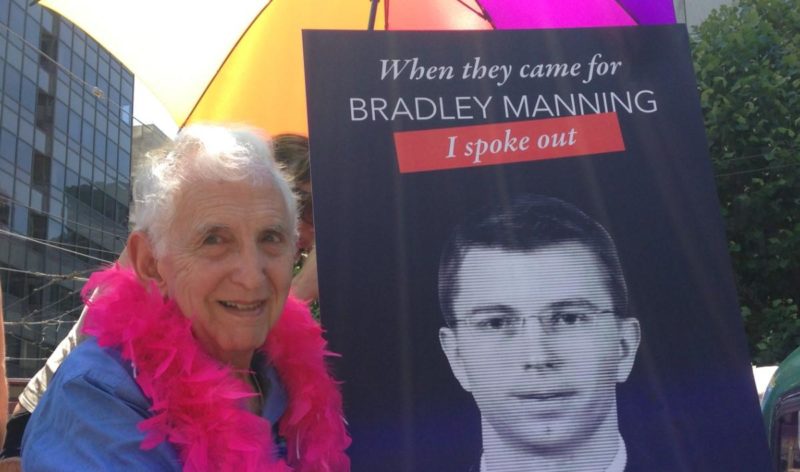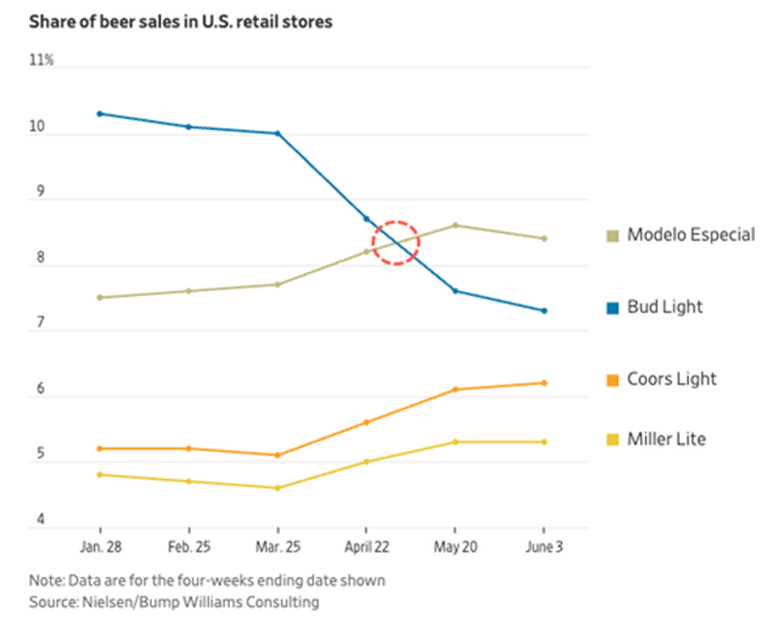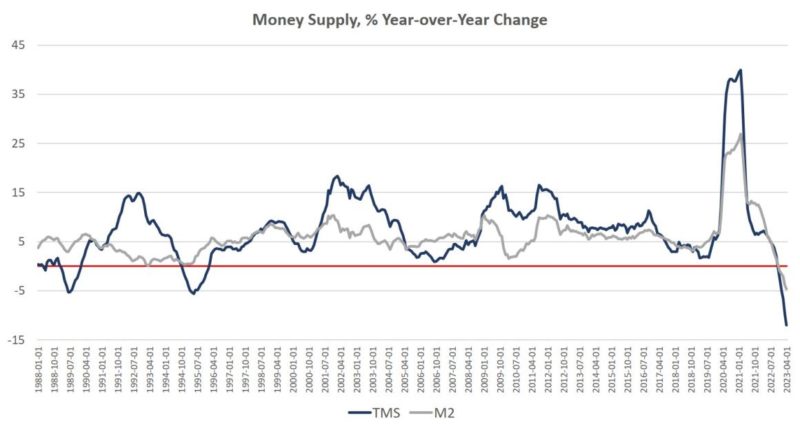Category Archive: 6b.) Mises.org
It’s Raining Entrepreneurship at a Taylor Swift Concert
While rain at an outdoor concert is a nuisance for most attendees, a few entrepreneurs saw not "pennies from heaven," but dollars.
Original Article: "It’s Raining Entrepreneurship at a Taylor Swift Concert"
Read More »
Read More »
Producers, Not Consumers, Are the Engine of Economic Growth
Keynesian economists believe that recessions occur because of a weakening in aggregate demand, so boosting demand will end the downturn. Whenever an economy shows signs of weakness, most experts believe that increasing aggregate demand will prevent the economy from sliding into a recession. Since private spending is declining, Keynesians say the government should counterbalance this decline by increasing government spending on goods and services....
Read More »
Read More »
David French Gets to Sit with the Cool Kids at the NYT Lunch Table
New York Times columnist David French likes to think of himself as an honest broker. In reality, his "Never Trump" mentality leads him to overlook government lawbreaking.
Original Article: "David French Gets to Sit with the Cool Kids at the NYT Lunch Table"
Read More »
Read More »
The Reality of the Market Process
As we enter the dog days of summer, I have heard several media conversations and a few private ones that express exasperation over languishing capital markets. Why do things take so long to unravel? What will happen next? When will X, Y, or Z happen? Why are tech stocks so bullish now? The market takes time to process the information that it already has — or is in "process" — and everyday brings new data.
The Austrian perspective...
Read More »
Read More »
Housing Prices Are Falling As Reality Sinks In
The local paper’s headline posed the question, “Do renters have the upper hand in Las Vegas right now?” “[The apartment project] offered us two weeks of no rent to get us moved in on the timeline we wanted,” said a renter who was also given passes to the Life Is Beautiful music festival as part of the deal. “They also throw resident events every month providing food and entertainment,” she added.
Las Vegas Review-Journal business reporter Patrick...
Read More »
Read More »
You Can’t Depend on the State to Maintain Public Order
Crime is increasing in American cities, but don't count on police to protect you. The Defund the Police movement has less to do with that than most people think.
Original Article: "You Can’t Depend on the State to Maintain Public Order"
Read More »
Read More »
Daniel Ellsberg Was Right. So Are Assange and Snowden.
Daniel Ellsberg died on June 16, and he remains one of the nation's most prominent whistleblowers who leaked secret government information to the public. Upon his death the general consensus among the writers of memorials for Ellsberg was that he was right to leak government secrets. As the editorial board at The Orange County Register recently put it, he was "a true American hero."
They're right about Ellsberg. During the Vietnam War,...
Read More »
Read More »
The MMT-and-Bailey Fallacy
One hears this kind of thing from modern monetary theory (MMT) advocates whenever their economic theories are attacked: “We say not spending constrained,” they grumble, “We don’t mean ‘now spend’.” However, what politicians hear is that they can have anything they really want because they can just print the money for it. “It’s a fact,” an MMTer might say. “Sovereign governments with their own currencies can never go bankrupt. They can always print...
Read More »
Read More »
A Great Man Cannot Salvage a Bad Idea
Einstein might have been one of history's most brilliant men, but even his great mind could not have made socialism work. Unfortunately, he wasn't smart enough to see that.
Original Article: "A Great Man Cannot Salvage a Bad Idea"
Read More »
Read More »
Do Boycotts Really Work? Another Look at the Bud Light Situation
For the past ten weeks, American conservatives have been boycotting Bud Light in response to a beer can featuring transgender figure Dylan Mulvaney. Since then, sales of the beer have been plummeting. However, this week, a new benchmark has been passed: Anheuser-Busch InBev’s Bud Light is no longer the top-selling beer in the United States. Instead, it has been overtaken by Modelo, as the following graph from the Wall Street Journal shows:
Source:...
Read More »
Read More »
Radical Decentralization Was the Key to the West’s Rise to Wealth and Freedom
It is not uncommon to encounter political theorists and pundits who insist that political centralization is a boon to economic growth. In both cases, it is claimed the presence of a unifying central regime—whether in Brussels or in Washington, DC, for example—is essential in ensuring the efficient and free flow of goods throughout a large jurisdiction. This, we are told, will greatly accelerate economic growth.
In many ways, the model is the United...
Read More »
Read More »
Yet Another Month of Questionable Federal Jobs Data as 310,000 Fewer People Report Having Jobs
In 2023, self-employment has collapsed again with year-over-year self-employment growth dropping by 6.5 percent. That's the largest drop since December 2007, when the Great Recession officially began.
Original Article: "Yet Another Month of Questionable Federal Jobs Data as 310,000 Fewer People Report Having Jobs"
Read More »
Read More »
Myth #4: Every Time the Fed Tightens the Money Supply, Interest Rates Rise (Or Fall)
Recorded by the Mises Institute in the mid-1980s, The Mises Report provided radio commentary from leading non-interventionists, economists, and political scientists. In this program, we present another part of "Ten Great Economic Myths". This material was prepared by Murray N. Rothbard.
The financial press now knows enough economics to watch weekly money supply figures like hawks; but they inevitably interpret these figures in a...
Read More »
Read More »
Is Social Justice the Progressive Equivalent of Rent-Seeking Behavior?
The term “rent seeking” is a derogatory term that implies companies and people seek to take more than they earn. It hearkens to some Marxist ideology as well. However, especially when combined with regulatory capture and bureaucratic corruption, rent seeking is a valid concept. What happens when the shoe is on the other foot and people and organizations engage in rent seeking from a social justice perspective? Is it rent seeking or corruption for...
Read More »
Read More »
My Long Journey to Rothbardian Sobriety
Everything possible is done to prevent the fraud of the monetary system from being exposed to the masses who suffer from it.
—Rep. Ron Paul (R-TX), before the US House of Representatives, February 15, 2006
In the mid-sixties, having read about gold in Atlas Shrugged, I decided to find out something about inflation and wrote to the United States Treasury Department to request a brochure that purported to lay inflation out in terms anyone could...
Read More »
Read More »
The Eurozone Falls into Recession as “Stimulus” Fails
Investor sentiment is clearly bullish. The CNN Fear and Greed Index for June 18th, 2023, stood at 82, which signals “extreme greed”. This is a drastic optimistic move after closing at “greed” (56 over 100) a month before and “extreme fear” (17 over 100) only one year ago. However, in the same period, the Citi global economic surprise index has declined twelve points, with the euro area component collapsing 123 points. The US economic surprise index...
Read More »
Read More »
The Carbon Capture Pipeline: The Latest Bridge to Nowhere
The carbon capture pipeline is the result of the latest gift to rent-seeking “titans of industry” and interestingly, may be used on some existing projects that came to be, years ago, due to rent seeking. More on this below.
As we’ve heard for years and years now, sometimes delivered in memorable ways, the continuing elevation of atmospheric levels of carbon dioxide, and other greenhouse gases, and the rising global temperatures that follow, is the...
Read More »
Read More »
The Money Supply Keeps Falling After Its Biggest Drop Since the Great Depression
Money supply growth fell again in April, plummeting further into negative territory after turning negative in November 2022 for the first time in twenty-eight years. April's drop continues a steep downward trend from the unprecedented highs experienced during much of the past two years.
Since April 2021, money supply growth has slowed quickly, and since November, we've been seeing the money supply repeatedly contract—year-over-year— for six months...
Read More »
Read More »
Rich Country, Poor Country. Why the Differences?
The scourge of poverty wounding citizens in the developing world has provoked much discussion in affluent countries. Quite unreasonably, rich countries have been indicted for inciting poverty in poor countries. Unfortunately, the assumption that prosperity stems from exploitation is still widely popular in academia and politics. However, the historical record casts serious doubt on this argument.
Imperialism was the standard in the ancient world,...
Read More »
Read More »
MMT Says Government Debt Makes Private Saving Possible
Mises Institute Fellow Patrick Newman joins Bob to discuss a recent tweet from Stephanie Kelton, which argued that the government's "red ink makes our black ink possible." Patrick and Bob point out that these MMT tautologies are very misleading at best. Patrick also lays out the argument in his journal article, saying that MMT's debt monetization won't cause a boom-bust cycle, but will still reduce living standards....
Read More »
Read More »































